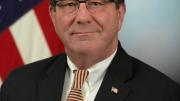The White House has nominated Ashton B. Carter, the Pentagon’s top weapons buyer, as the next deputy secretary of defense, reports the Boston Globe. The Obama administration noted that Carter’s nomination indicates the importance the White House places on finding savings and cuts in the Defense Department budget, specifically the difficult task of slicing hundreds of billions of dollars from the military’s budget in the next decade .
“It’s going to be tough,” said Gordon Adams, a distinguished fellow at the Stimson Center, a Washington security policy think tank, in a recent Globe article. “The services want more; there’s not going to be more. And it’s going to be the job of the secretary, and especially the deputy, to turn the screws in that process. That’ll be a real test for Carter.”
Carter, an Oxford graduate and former director of the Belfer Center for Science and International Affairs at the Harvard Kennedy School, is expected to be confirmed by the Senate with little opposition. With the Pentagon facing cuts that are estimated to be as high as $800 billion to $1 trillion, Carter’s extensive knowledge of the military’s multibillion-dollar weapons programs made him the most logical choice, according to the Washington Post. Carter, whose nomination was one of many announced this week by the White House, also served in the Pentagon during the Clinton administration, focusing on North Korea, nuclear issues, and terrorism.
“These dedicated individuals bring a wealth of experience and talent to their new roles and I am proud to have them serve in this administration. I look forward to working with them in the months and years to come,” President Obama said in a statement published in the Globe.









